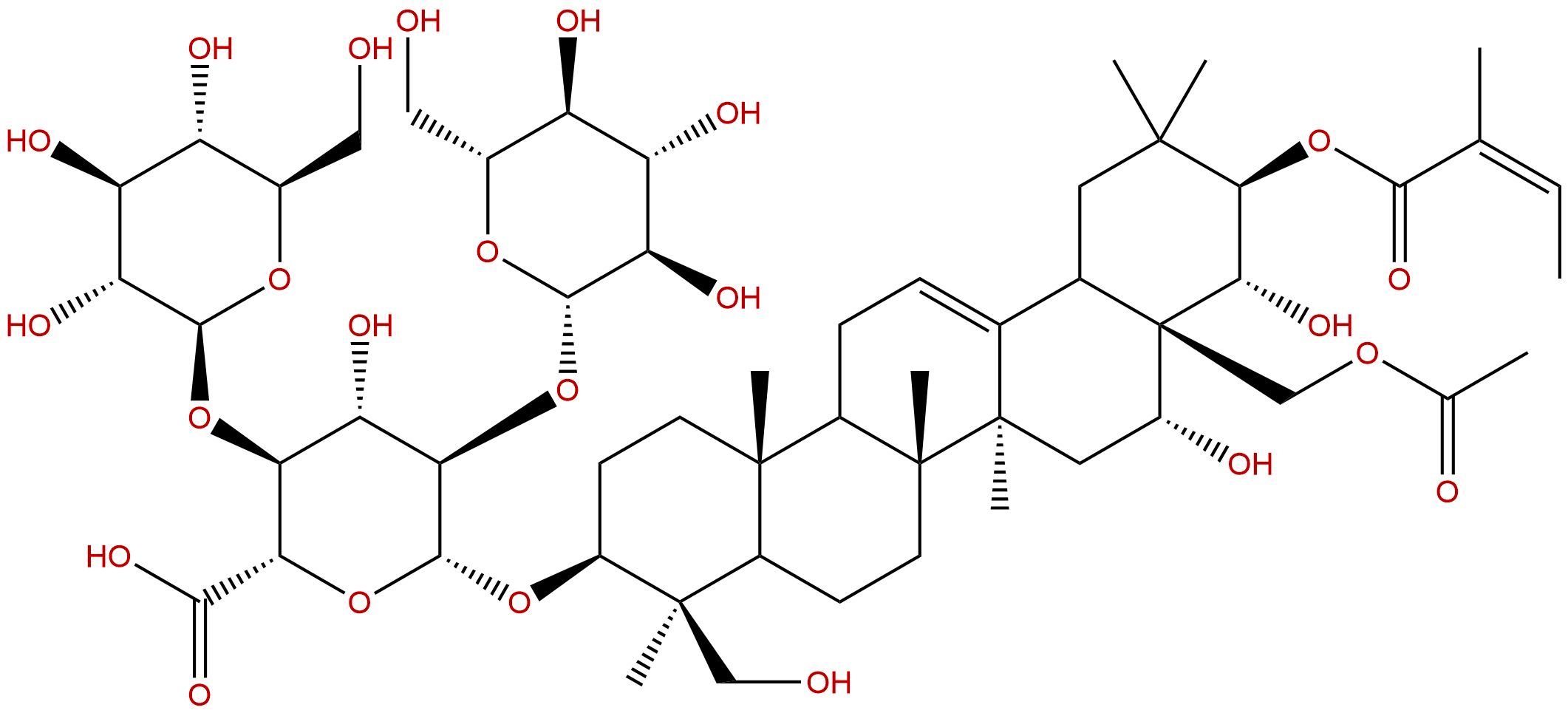
Isoescin IBCAS No.:219944-46-4
|
||||||||||
 |
|
|
||||||||

| Catalogue No.: | BP0780 |
| Formula: | C55H86O24 |
| Mol Weight: | 1131.27 |
Product name: Isoescin IB
Synonym name: Escin IVb
Catalogue No.: BP0780
Cas No.: 219944-46-4
Formula: C55H86O24
Mol Weight: 1131.27
Botanical Source: Aesculi semen
Physical Description:
Type of Compound: Terpenoids
Purity: 95%~99%
Analysis Method: HPLC-DAD or/and HPLC-ELSD
Identification Method: Mass, NMR
Packing: Brown vial or HDPE plastic bottle
Storage: Store in a well closed container, protected from air and light. Put into refrigerate or freeze for long term storage.
Whenever possible, you should prepare and use solutions on the same day. However, if you need to make up stock solutions in advance, we recommend that you store the solution as aliquots in tightly sealed vials at -20℃. Generally, these will be useable for up to two weeks.
The product could be supplied from milligrams to grams
Inquire for bulk scale.
Description:
Isoescin IB is a natural product from Aesculus hippocastanum L.
References:
Adv Pharm Bull. 2015 Nov;5(4):587-91.
Determination of Four Major Saponins in Skin and Endosperm of Seeds of Horse Chestnut (Aesculus Hippocastanum L.) Using High Performance Liquid Chromatography with Positive Confirmation by Thin Layer Chromatography.
To separate and quantify four major saponins in the extracts of the skin and the endosperm of seeds of horse chestnut (Aesculus hippocastanum L.) using ultrasonic solvent extraction followed by a high performance liquid chromatography-diode array detector (HPLC-DAD) with positive confirmation by thin layer chromatography (TLC).
METHODS AND RESULTS:
The saponins: escin Ia, escin Ib, isoescin Ia and Isoescin IB were extracted using ultrasonic extraction method. The optimized extraction conditions were: 70% methanol as extraction solvent, 80 °C as extraction temperature, and the extraction time was achieved in 4 hours. The HPLC conditions used: Zorbax SB-ODS-(150 mm × 2.1 mm, 3 μm) column, acetonitrile and 0.10% phosphoric acid solution (39:61 v/v) as mobile phase, flow rate was 0.5 mL min(-1) at 210 nm and 230 nm detection. The injection volume was 10 μL, and the separation was carried out isothermally at 30 °C in a heated chamber. The results indicated that the developed HPLC method is simple, sensitive and reliable. Moreover, the content of escins in seeds decreased by more than 30% in endosperm and by more than 40% in skin upon storage for two years.
CONCLUSIONS:
This assay can be readily utilized as a quality control method for horse chestnut and other related medicinal plants.
HPLC of Isoescin IB
